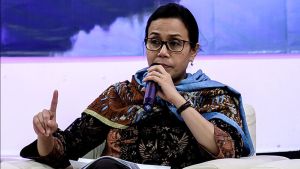JAKARTA - Secretary General of the Ministry of Religion (Kemenag) Nizar Ali said that the management of Hajj fund investment by a special institution, namely the Hajj Financial Management Agency (BPKH), did not bring significant benefits when considering the amount that reached Rp. 143 trillion.
According to him, the activities carried out by BPKH are not much different from what was done by the Ministry of Religion when it was still in charge of managing hajj funds, namely focusing on deposits and sukuk. Whereas BPKH is authorized to be able to place these funds in direct investment.
In fact, Nizar said that the investment results made by BPKH were absorbed quite a lot for the operational costs of the institution itself. The reason is that the budget used for BPKH activities is sourced from the returns obtained from the congregation's fund management.
"When you look at the benefits of managing hajj funds, what BPKH does is not much different from when it was at the Ministry of Religion, which is around 5.4 percent per year on average. If they only get the same percentage, I think the congregation will be disadvantaged because they have to finance the operations of a new institution, which turns out to be the same result," he said in the Hajj Fund Management Webinar which was broadcast virtually, Monday, July 19.
Nizar added that initially the establishment of BPKH was considered capable of providing more benefits for the investments made. But it is now called far from reality.
"This is far from what BPKH promised when it was set up, far from what was done during the fit and proper test by the DPR," he said.
According to Nizar, BPKH's operational costs reach hundreds of billions per year.
“We are aware that BKPH costs are taken from a fairly large investment of hajj funds. In 2020 alone, BPKH's operational costs reached Rp291.4 billion. On a net basis, the investment returns enjoyed by the congregation will be smaller," he said.
He also considers that the management of hajj funds by the Ministry of Religion is more efficient and effective because it uses a smaller budget scheme.
"If it is managed by the Ministry of Religion, the operational costs are borne by the state, in accordance with the operational standards of the state civil apparatus (ASN)," he said.
Nizar then shared his experience when the Ministry of Religion still played a role in managing the people's funds.
"At the Ministry of Religion at that time only one directorate did everything, from receiving funds, investing, and issuing," he said.
For information, BPKH is the authority that has the authority to invest Hajj funds based on Law Number 34 of 2014 concerning Hajj Financial Management. This institution has the main task of placing funds in certain investment instruments with a number of requirements, such as having to comply with sharia principles, be carried out carefully, safely and provide value for benefits for the congregation.
The English, Chinese, Japanese, Arabic, and French versions are automatically generated by the AI. So there may still be inaccuracies in translating, please always see Indonesian as our main language. (system supported by DigitalSiber.id)













